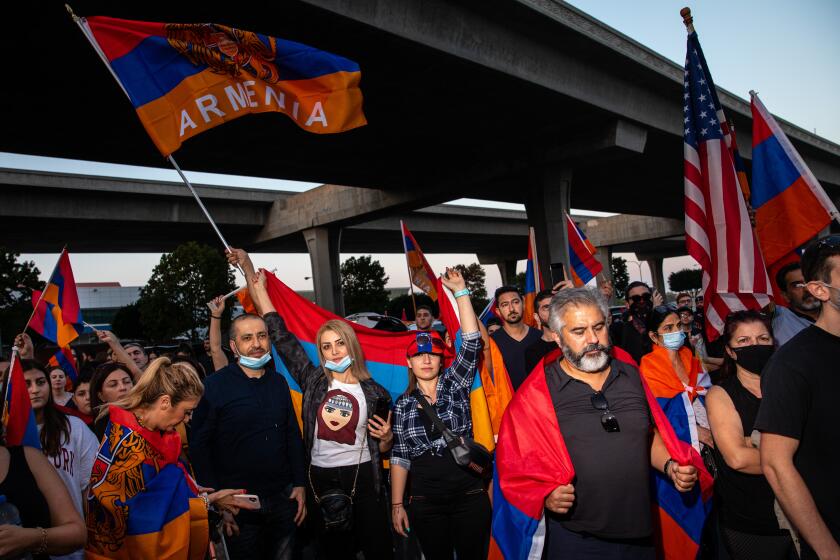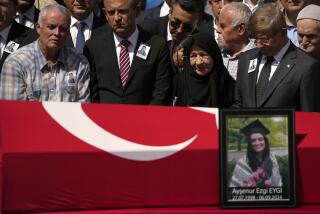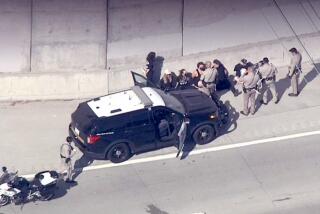Tens of thousands protest outside L.A.’s Turkish Consulate in solidarity with Armenia
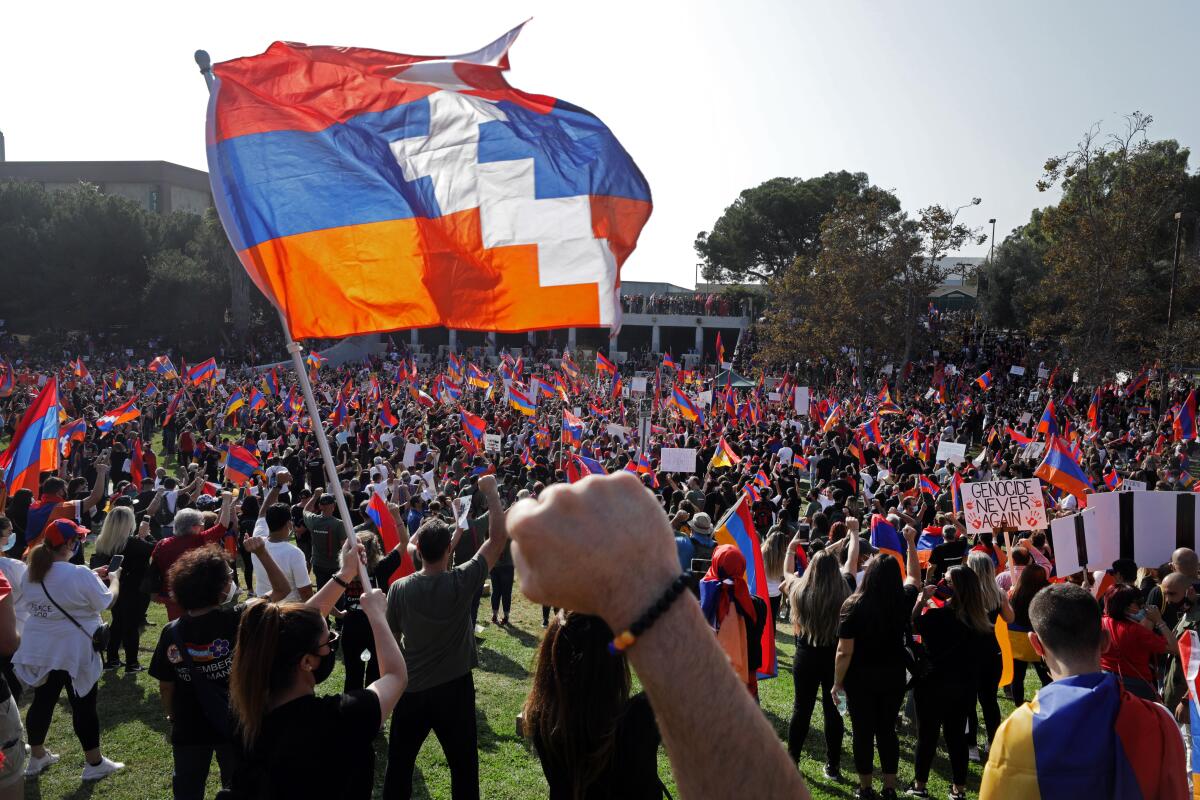
Tens of thousands of demonstrators protested outside the Turkish Consulate in Beverly Hills on Sunday afternoon in a show of solidarity with Armenia in its battle with neighboring Azerbaijan over a tiny separatist region on the border of the former Soviet republics.
The crowd was estimated at 35,000 people, at its height stretching down Wilshire Boulevard from Fairfax Avenue to La Cienega Boulevard, Beverly Hills Police Lt. Todd Withers said. The Los Angeles Police Department’s Wilshire Station later tweeted that the crowd had reached 100,000.
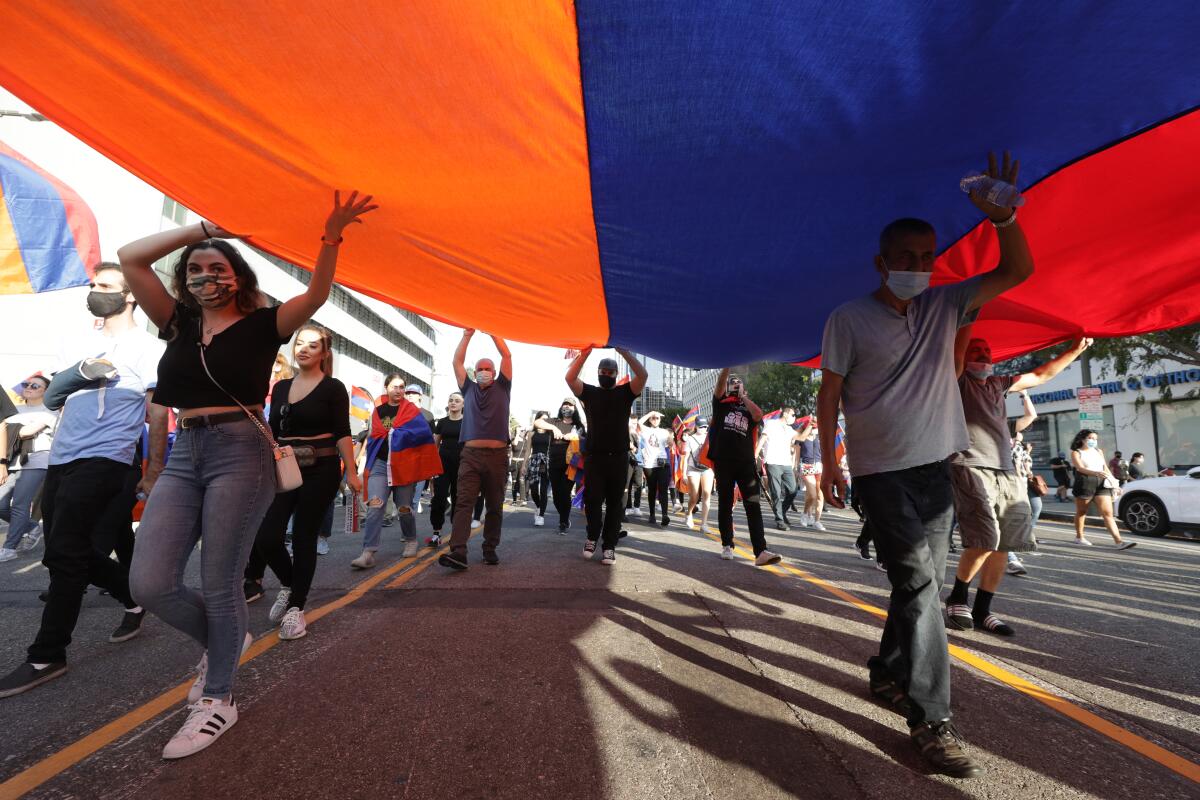
Since fighting broke out in the region Sept. 27, thousands of Armenian Americans and supporters have taken to the streets of Los Angeles to protest the hostilities more than 7,000 miles away, blocking major freeways and demanding that politicians back their cause. Some have left to fight on the front for their homeland or aid in the humanitarian side of the war effort.
At least 200 protesters gathered outside the Armenian Consulate in Glendale on Saturday night.
The demonstrators have focused their opposition on Turkey, which has expressed support for Azerbaijan, in part because of the two nations’ strong ethnic ties.
Arutyun Kadzhikyan, 56, wept as he and other protesters gathered in L.A.’s Pan Pacific Park before marching to the consulate. The native of Armenia, who has been in the U.S. for 30 years, said Turkey and Azerbaijan were trying to carry out a genocide against his people.
“No more war, no more killing each other,” said Kadzhikyan, who wore a mask with an image of the Armenian flag and a shirt embroidered with a peace sign.
Kristine Hamalian and her husband, Sarkis Hamalian, honeymooned in the contested region last year. The couple, who live in Granada Hills, joined protesters to “do whatever we can out here to help those in Armenia,” said Hamalian, 29.
Turkish Consul General Can Oguz said his country was not a party to the current fighting.
“Turkey has strong relations with Azerbaijan, it’s no secret,” Oguz said. “It’s based on history and culture.”
“Accusations leveled against Turkey in the recent confrontation are just aimed to distract attention from this illegal occupation and the violation of our recent cease-fire,” he said.

On Sunday, Oct. 11, 2020, demonstrators protested in solidarity with Armenia and its battle over the disputed border region of Nagorno-Karabakh, referred to by Armenians as Artsakh.
The demonstration arrives amid a fraying Russian-brokered cease-fire between the two countries in the South Caucasus. Almost immediately after the cease-fire went into effect at noon Saturday, each side accused the other of shelling civilian areas and escalating two weeks of deadly clashes.
At the center of the dispute is Nagorno-Karabakh, referred to by Armenians as Artsakh, which is internationally recognized as part of Azerbaijan but populated mostly by ethnic Armenians. Hostilities over the region are at their fiercest since an uneasy truce in 1994 ended a separatist war that claimed about 30,000 lives.
The conflict over Nagorno-Karabakh can be traced to the beginnings of the Soviet Union. In 1923, Nagorno-Karabakh became part of Soviet Azerbaijan while maintaining its autonomous status.
Around the 1991 collapse of the Soviet Union, there were attempts from Nagorno-Karabakh to break away from Azerbaijan, which were met with violence.
Violence has flared periodically since the 1994 cease-fire, notably during 2016’s Four-Day War, when clashes left hundreds dead.
Los Angeles is the home to one of the largest Armenian diasporas. Here’s why many are fearful over the recent violence with Azerbaijan in the disputed Nagorno-Karabakh region, known to Armenians as Artsakh.
In July, border clashes outside the contested area resulted in deaths of Armenian and Azebaijani servicemen.
Armenia said last month that a Turkish warplane had shot down an Armenian jet. But Turkey and Azerbaijan vigorously denied that.
Turkish President Recep Tayyip Erdogan said recently that a call for peace from France, Russia and the U.S. was unacceptable and that “our Azerbaijani brothers are now waiting for the day they will return to their land.”
Times staff writer Ada Tseng contributed to this report.
More to Read
Sign up for Essential California
The most important California stories and recommendations in your inbox every morning.
You may occasionally receive promotional content from the Los Angeles Times.

